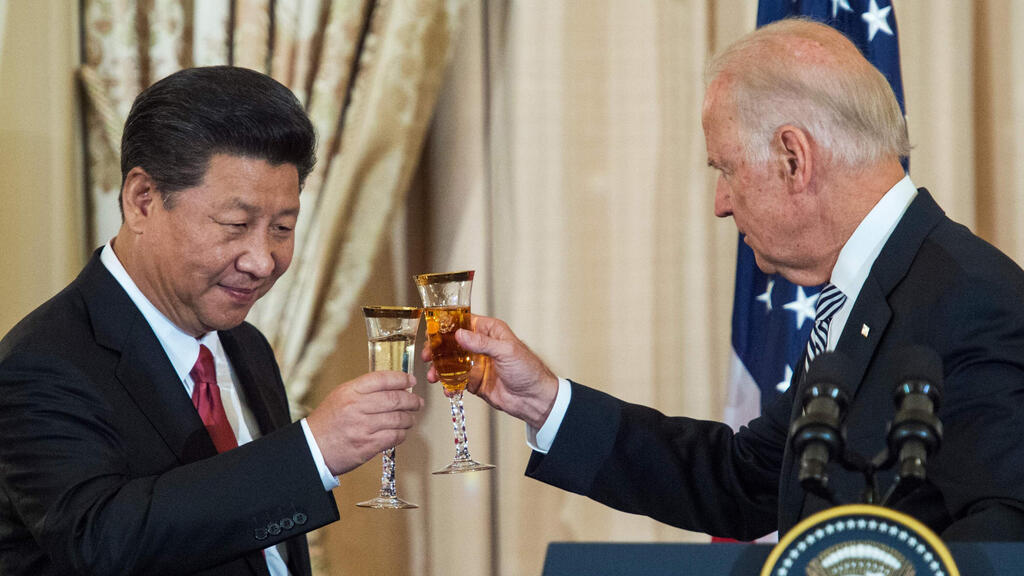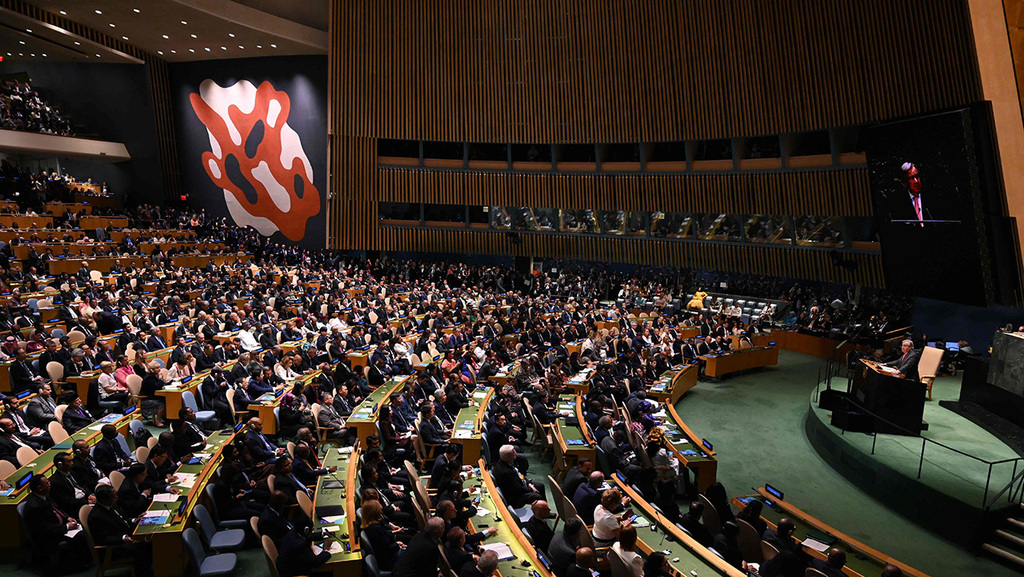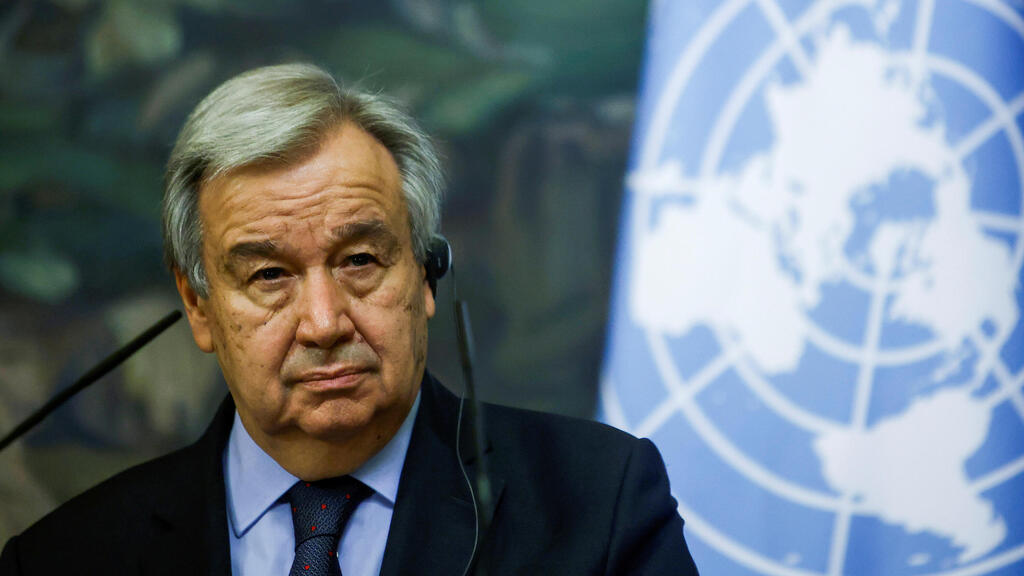Prime Minister Naftali Bennett will address the UN General Assembly that begins hearing world leaders on Tuesday in its annual conference, with a formidable agenda of escalating crises to tackle, including the still raging COVID-19 pandemic and a relentlessly warming planet.
This will be Bennett's first major international speech and will deal with matters of Israeli national security with an emphasis on the dangers to the Middle East and beyond, which are posed by Iran.
Iran's newly elected hardline President Ebrahim Raisi will address the Diplomatic forum on Tuesday.
Ministers from Britain, China, France, Germany and Russia will not meet with Iran at the United Nations this week to discuss a return to nuclear deal talks, European Union foreign policy chief Josep Borrell told reporters on Monday, despite earlier speculation that such meetings will take place.
Some years it happens, some years it doesn't happen. It's not in the agenda," said Borrell, who acts as coordinator for the nuclear deal - known as the Joint Comprehensive Plan of Action (JCPOA).
Bennett will travel to New York on Saturday and address the international body on Monday.
Other pressing issues are rising U.S.- China tensions, Afghanistan's unsettled future under its new Taliban rulers and ongoing conflicts in Yemen, Syria and Ethiopia's embattled Tigray region.
This year, the General Assembly offered leaders a choice of coming to New York or remaining online, and more than 100 heads of state and government decided to appear in person in the General Assembly hall.
U.N. Secretary-General Antonio Gutteres, who opens the week-long event, "will pull no punches in expressing his concern about the state of the world, and he will lay out a vision to bridge the numerous divides that stand in the way of progress," U.N. spokesman Stephane Dujarric said.
By tradition, the first country to speak is Brazil, whose president, Jair Bolsonaro, is not vaccinated. He reiterated last Thursday that he does not plan to get the shot any time soon, justifying his refusal by saying he had COVID-19 and therefore has a high level of antibodies.
A key issue ahead of the meetings has been COVID-19 entry requirements for leaders to the United States and to the U.N. headquarters itself. The U.S. requires a vaccination or a recent COVID-19 test, and the U.N. will operate on an honor system whereby anyone entering the complex attests that they do not have symptoms of COVID-19 and have not tested positive in the last 10 days.
U.S. President Joe Biden will appear on Tuesday at the U.N. for the first time since his defeat of Donald Trump in the November election.
China's President Xi Jinping, also on Tuesday, will deliver a video address. His speech and any comments about the U.S. rivalry are certain to be closely watched and analyzed.
Ahead of the opening of the General Assembly's annual General Debate, Guterres issued a dire warning that the world could be plunged into a new and probably more dangerous Cold War unless the United States and China repair their "totally dysfunctional" relationship.
The U.N. chief said in an interview this weekend with The Associated Press that Washington and Beijing should be cooperating on the climate crisis and negotiating on trade and technology, but "unfortunately, today we only have confrontation" including over human rights and geostrategic problems mainly in the South China Sea.
Speaking last week about Biden's speech, Richard Gowan, U.N. director of the International Crisis Group, said "the really significant question is exactly how he frames relations with China." He predicted that Biden "won't be as forthright in criticism of China as Trump was, especially in 2019 and 2020," but rather will "try and cast China as a country that is challenging the rules-based world order and a country that should not be trusted with leadership of the international system."
3 View gallery


Then vice president Joe Biden with Chinese President Xi Jinping meeting in Washington in 2015
(Photo: AFP)
Leaders delivering prerecorded statements this year include the presidents of Egypt, Indonesia, South Africa and Zimbabwe. French President Emmanuel Macron was supposed to deliver a pre-recorded statement on Tuesday, but the government said Foreign Minister Jean-Yves Le Drian will now deliver the country's address virtually on the final day.
Other leaders scheduled to speak in person during the meeting, which ends Sept. 27, include King Abdullah II of Jordan, the president of Venezuela, and the prime ministers of Japan, India and the United Kingdom and Palestinian President Mahmoud Abbas.
First published: 09:26, 09.21.21



